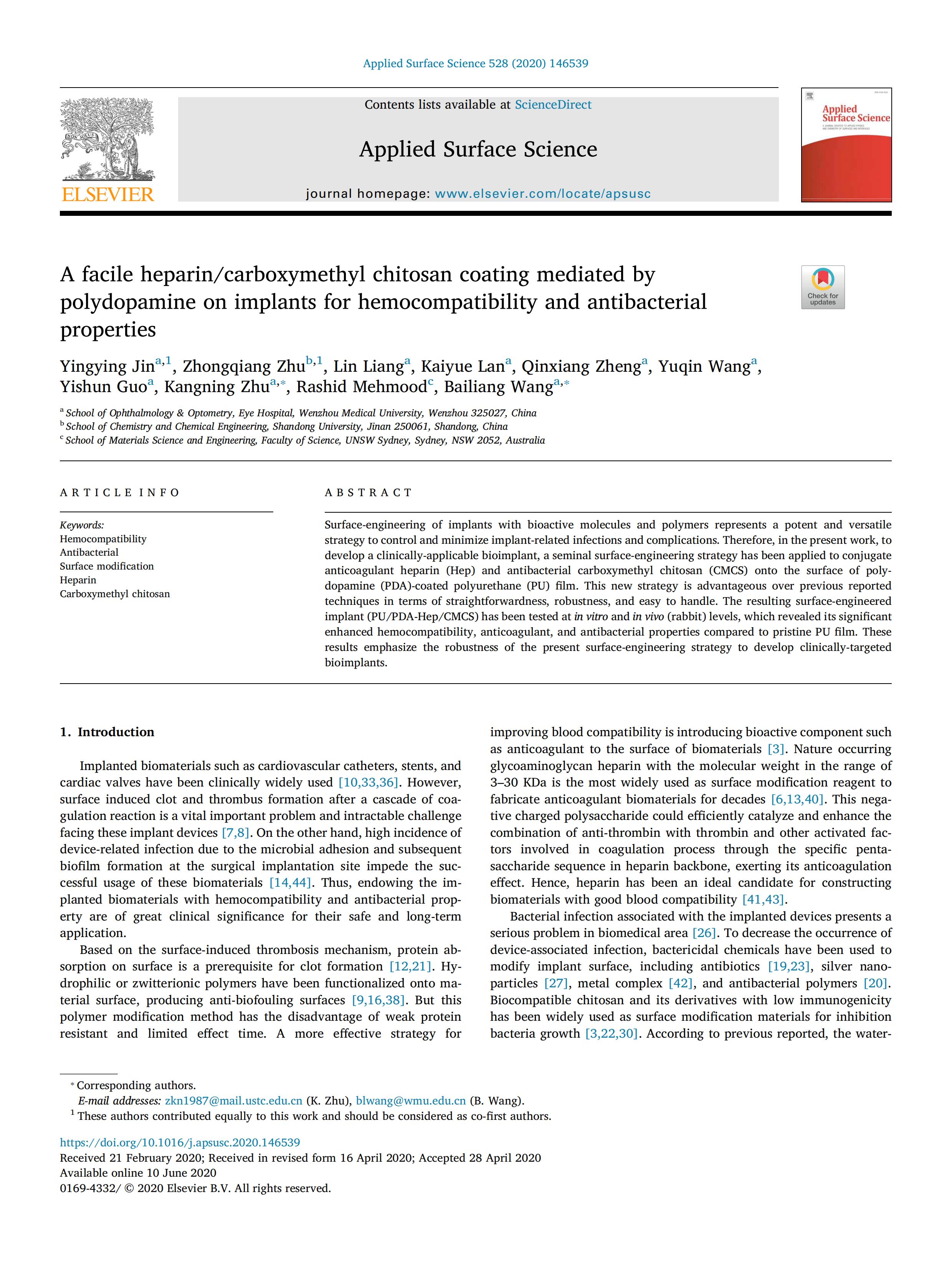Surface-engineering of implants with bioactive molecules and polymers represents a potent and versatile strategy to control and minimize implant-related infections and complications. Therefore, in the present work, to develop a clinically-applicable bioimplant, a seminal surface-engineering strategy has been applied to conjugate anticoagulant heparin (Hep) and antibacterial carboxymethyl chitosan (CMCS) onto the surface of polydopamine (PDA)-coated polyurethane (PU) film. This new strategy is advantageous over previous reported techniques in terms of straightforwardness, robustness, and easy to handle. The resulting surface-engineered implant (PU/PDA-Hep/CMCS) has been tested at in vitro and in vivo (rabbit) levels, which revealed its significant enhanced hemocompatibility, anticoagulant, and antibacterial properties compared to pristine PU film. These results emphasize the robustness of the present surface-engineering strategy to develop clinically-targeted bioimplants.
